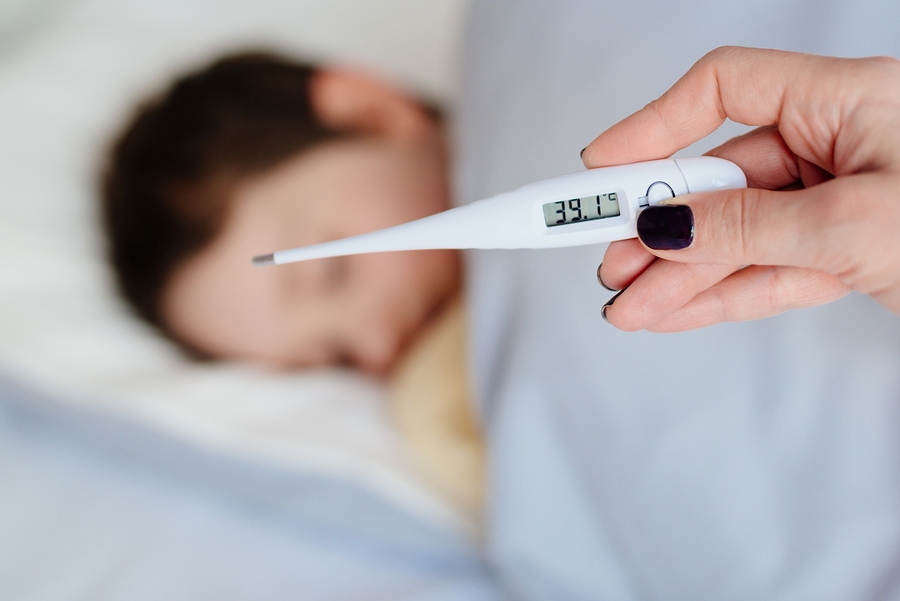The last few days has seen my Facebook feed filled with posts from friends, family and acquaintances hit with the stomach flu.
Children and parents alike are falling ill with this debilitating virus – many losing so much weight its obvious in posted photos. Contributor Teresa Cheong and The Department of Infectious Diseases at Singapore General Hospital shares about how norovirus spreads as well as its potential complications.
The Norovirus is the most common viral cause of stomach flu, which causes stomach or intestinal inflammation and presents symptoms such as severe stomach pain, vomiting and mild fever.
A strain of the norovirus that causes a severe type of stomach flu called norovirus gastroenteritis, emerged and spread across the world through international travel. Dubbed “Sydney 2012” because of its point of origin, this norovirus strain can cause violent and projectile vomiting, diarrhoea and stomach pain.
Stomach flu is caused by many types of virus, but the norovirus is the most common. Often referred to as the “winter vomiting disease”, people infected with the norovirus suffer from stomach or intestinal inflammation or both, leading to severe stomach pain. There can be fever as well.
“Although the norovirus is highly contagious, it usually does not lead to fatalities, and symptoms of this viral infection will normally go away after one to three days,” says Dr Low Chian Yong, Visiting Consultant, Department of Infectious Diseases, Singapore General Hospital (SGH), a member of the SingHealth group.

Stomach Pain And Other Signs Of Norovirus Infection
The onset of norovirus-caused stomach flu is usually sudden. Watch out for the following symptoms, and if they persist or worsen after three days, seeking medical attention is advised.
- Vomiting
- Stomach pain
- Stomach cramps
- Watery diarrhoea
- Body ache
- Lethargy
- Mild fever
See a doctor immediately if the following symptoms occur:
- Decrease in urination
- Dry mouth and throat
- Feeling dizzy when standing up
- Children cry with few or no tears or are unusually sleepy or fussy
How Does The Norovirus Infection Spread?
Norovirus spreads from person to person through contact with contaminated food, water, stools and surfaces. Infected food handlers who do not wash their hands before preparing food can easily spread the virus. Surfaces such as doorknobs and handrails may also become contaminated.
Complications From The Norovirus Infection
The most serious complication arising from stomach flu caused by the norovirus is dehydration. This is likely to occur in the elderly and young children. Seek immediate medical help if you notice dehydration symptoms such as excessive thirst, dizziness, dry mouth, dark urine, little or no urine, rapid heartbeat and rapid breathing.
Immediate rehydration through intravenous fluids is needed to replace the loss of fluids as severe dehydration can result in kidney failure, low blood pressure and even death.
Other complications include high fever, bloody vomit and bloody stools.

Five Tips To Prevent Norovirus Infection
Maintain Good Personal Hygiene
Wash your hands (with soap) frequently, especially after going to the toilet, changing diapers and before preparing food. Dry your hands thoroughly and do not share utensils with infected persons.
Avoid Crowded Or Confined Spaces
If you have a compromised immunity or are not feeling well, avoid crowded places such as malls, hospitals, aged care homes and cruise ships to minimise your risk of getting infected.
Be Mindful Of Contaminated Surfaces
The norovirus can survive for several hours on contaminated handrails, doorknobs and toilet surfaces. Avoid touching your hands or mouth after coming into contact with these surfaces.
Disinfect Your Home
If you are caring for an infected person at home, disinfect surfaces such as those in the bathroom with a bleach solution, to prevent the virus from spreading to other family members.
Drink Plenty Of Water
Stop mild symptoms of norovirus infection from becoming worse by staying hydrated by drinking water or oral rehydration fluids after each bout of diarrhoea and vomiting. Avoid milk, fruit juices or sugary drinks.
Unlike influenza or the common flu which can be prevented with vaccination, there is currently no vaccine against the norovirus. There are, however, vaccine candidates being developed which may become available in four to five years’ time.
As for now, “strict personal hygiene remains our best defence against norovirus infection. For those infected, replace your fluids and seek medical help early if you detect symptoms of dehydration,” says Dr Low Chian Yong, Visting Consultant, Department of Infectious Diseases, Singapore General Hospital (SGH), a member of the SingHealth group.
This article was first published here. Trusted health tips tailored for Asia, by Singapore’s largest academic medical centre, SingHealth HealthXchange.sg



